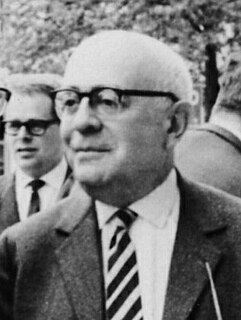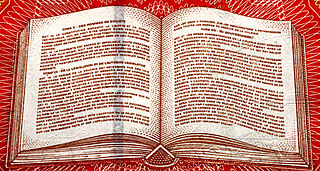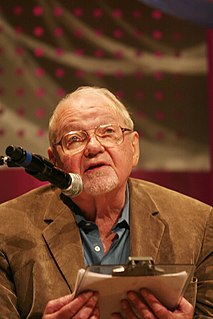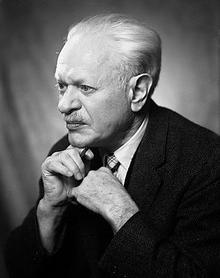Related Research Articles

Theodor W. Adorno was a German philosopher, sociologist, psychologist, musicologist, and composer.

Literary theory is the systematic study of the nature of literature and of the methods for literary analysis. Since the 19th century, literary scholarship includes literary theory and considerations of intellectual history, moral philosophy, social prophecy, and interdisciplinary themes relevant to how people interpret meaning. In the humanities in modern academia, the latter style of literary scholarship is an offshoot of post-structuralism. Consequently, the word theory became an umbrella term for scholarly approaches to reading texts, some of which are informed by strands of semiotics, cultural studies, philosophy of language, and continental philosophy.

Literary criticism is the study, evaluation, and interpretation of literature. Modern literary criticism is often influenced by literary theory, which is the philosophical discussion of literature's goals and methods. Though the two activities are closely related, literary critics are not always, and have not always been, theorists.

Herman Northrop Frye was a Canadian literary critic and literary theorist, considered one of the most influential of the 20th century.

Fredric Jameson is an American literary critic, philosopher and Marxist political theorist. He is best known for his analysis of contemporary cultural trends, particularly his analysis of postmodernity and capitalism. Jameson's best-known books include Postmodernism, or, The Cultural Logic of Late Capitalism (1991) and The Political Unconscious (1981).

Reader-response criticism is a school of literary theory that focuses on the reader and their experience of a literary work, in contrast to other schools and theories that focus attention primarily on the author or the content and form of the work.
Russian formalism was a school of literary criticism in Russia from the 1910s to the 1930s. It includes the work of a number of highly influential Russian and Soviet scholars such as Viktor Shklovsky, Yuri Tynianov, Vladimir Propp, Boris Eichenbaum, Roman Jakobson, Boris Tomashevsky, Grigory Gukovsky who revolutionised literary criticism between 1914 and the 1930s by establishing the specificity and autonomy of poetic language and literature. Russian formalism exerted a major influence on thinkers like Mikhail Bakhtin and Juri Lotman, and on structuralism as a whole. The movement's members had a relevant influence on modern literary criticism, as it developed in the structuralist and post-structuralist periods. Under Stalin it became a pejorative term for elitist art.
New Criticism was a formalist movement in literary theory that dominated American literary criticism in the middle decades of the 20th century. It emphasized close reading, particularly of poetry, to discover how a work of literature functioned as a self-contained, self-referential aesthetic object. The movement derived its name from John Crowe Ransom's 1941 book The New Criticism.

Cleanth Brooks was an American literary critic and professor. He is best known for his contributions to New Criticism in the mid-20th century and for revolutionizing the teaching of poetry in American higher education. His best-known works, The Well Wrought Urn: Studies in the Structure of Poetry (1947) and Modern Poetry and the Tradition (1939), argue for the centrality of ambiguity and paradox as a way of understanding poetry. With his writing, Brooks helped to formulate formalist criticism, emphasizing "the interior life of a poem" and codifying the principles of close reading.

Kenneth Duva Burke was an American literary theorist, as well as poet, essayist, and novelist, who wrote on 20th-century philosophy, aesthetics, criticism, and rhetorical theory. As a literary theorist, Burke was best known for his analyses based on the nature of knowledge. Further, he was one of the first individuals to stray from more traditional rhetoric and view literature as "symbolic action."
"The Death of the Author" is a 1967 essay by the French literary critic and theorist Roland Barthes (1915–1980). Barthes's essay argues against traditional literary criticism's practice of relying on the intentions and biography of an author to definitively explain the "ultimate meaning" of a text. Instead, the essay emphasizes the primacy of each individual reader's interpretation of the work over any "definitive" meaning intended by the author, a process in which subtle or unnoticed characteristics may be drawn out for new insight. The essay's first English-language publication was in the American journal Aspen, no. 5–6 in 1967; the French debut was in the magazine Manteia, no. 5 (1968). The essay later appeared in an anthology of Barthes's essays, Image-Music-Text (1977), a book that also included his "From Work to Text".
Formalism is a school of literary criticism and literary theory having mainly to do with structural purposes of a particular text. It is the study of a text without taking into account any outside influence. Formalism rejects or sometimes simply "brackets" notions of culture or societal influence, authorship, and content, and instead focuses on modes, genres, discourse, and forms.
Dramatism, a communication studies theory, was developed by Kenneth Burke as a tool for analyzing human relationships through the use of language. Burke viewed dramatism from the lens of logology, which studies how people's ways of speaking shape their attitudes towards the world. According to this theory, the world is a stage where all the people present are actors and their actions parallel a drama. Burke then correlates dramatism with motivation, saying that people are "motivated" to behave in response to certain situations, similar to how actors in a play are motivated to behave or function. Burke discusses two important ideas – that life is drama, and the ultimate motive of rhetoric is the purging of guilt. Burke recognized guilt as the base of human emotions and motivations for action. As cited in "A Note on Burke on "Motive"", the author recognized the importance of "motive" in Burke's work. In "Kenneth Burke's concept of motives in rhetorical theory", the authors mentioned that Burke believes that guilt, "combined with other constructs, describes the totality of the compelling force within an event which explains why the event took place."
Franco Moretti is an Italian literary historian and theorist. He graduated in Modern Literatures from the University of Rome in 1972. He has taught at the universities of Salerno (1979–1983) and Verona (1983–1990); in the US, at Columbia (1990–2000) and Stanford (2000–2016), where in 2000 he founded the Center for the Study of the Novel, and in 2010, with Matthew Jockers, the Stanford Literary Lab. Moretti has given the Gauss Seminars at Princeton, the Beckman Lectures at Berkeley, the Carpenter Lectures at the University of Chicago, and has been a lecturer and visiting professor in many countries, including, until the end of 2019, the Digital Humanities Institute at the École Polytechnique Fédérale de Lausanne.

The sociology of literature is a subfield of the sociology of culture. It studies the social production of literature and its social implications. A notable example is Pierre Bourdieu's 1992 Les Règles de L'Art: Genèse et Structure du Champ Littéraire, translated by Susan Emanuel as Rules of Art: Genesis and Structure of the Literary Field (1996).
Geocriticism is a method of literary analysis and literary theory that incorporates the study of geographic space. The term designates a number of different critical practices. In France, Bertrand Westphal has elaborated the concept of géocritique in several works. In the United States, Robert Tally has argued for a geocriticism as a critical practice suited to the analysis of what he has termed "literary cartography".

Theory of Literature is a book on literary scholarship by René Wellek, of the structuralist Prague school, and Austin Warren, a self-described "old New Critic". The two met at the University of Iowa in the late 1930s, and by 1940 had begun writing the book; they wrote collaboratively, in a single voice over a period of three years. Its contents were based on their shared understandings of literature.

Marxism was introduced by Karl Marx. Most Marxist critics who were writing in what could chronologically be specified as the early period of Marxist literary criticism, subscribed to what has come to be called "vulgar Marxism." In this thinking of the structure of societies, literary texts are one register of the superstructure, which is determined by the economic base of any given society. Therefore, literary texts are a reflection of the economic base rather than "the social institutions from which they originate" for all social institutions, or more precisely human–social relationships, are in the final analysis determined by the economic base.

Chintayami Manasa, published in 1983, is a critical work of essays in the Gujarati language by Indian writer Suresh Joshi. Joshi evaluated ideas based on European and American criticism, like new criticism, semiotics linguistics-oriented criticism, modernism, and postmodernism in the book. In 1983, he received the Sahitya Akademi Award for his book, which he refused to accept.
Distant reading is an approach in literary studies that applies computational methods to literary data, usually derived from large digital libraries, for the purposes of literary history and theory. While the term is collective, and is used to refer to a range of different computational methods of analysing literary data, similar approaches also include macroanalysis, cultural analytics, computational formalism, computational literary studies, quantitative literary studies, and algorithmic literary criticism.
References
- Adams, Hazard. Critical Theory Since Plato. Harcourt Brace Jovanovich, New York: 1971.
- Burke, Kenneth. "Literature as Equipment for Living." Critical Theory Since Plato. Harcourt Brace Jovanovich, New York: 1971.
- Harrington, Austin. Art and Social Theory. Polity Press Ltd., Malden: 2004.
- Moretti, Franco. "The Dialectic of Fear". New Left Review 1/136, November-December 1982.
